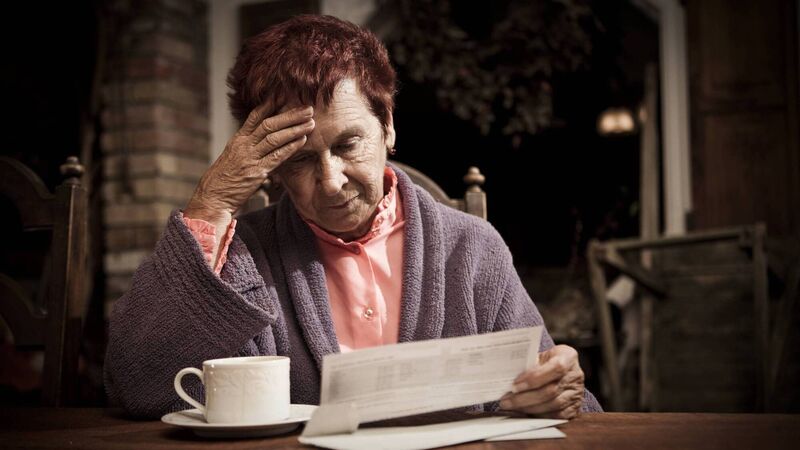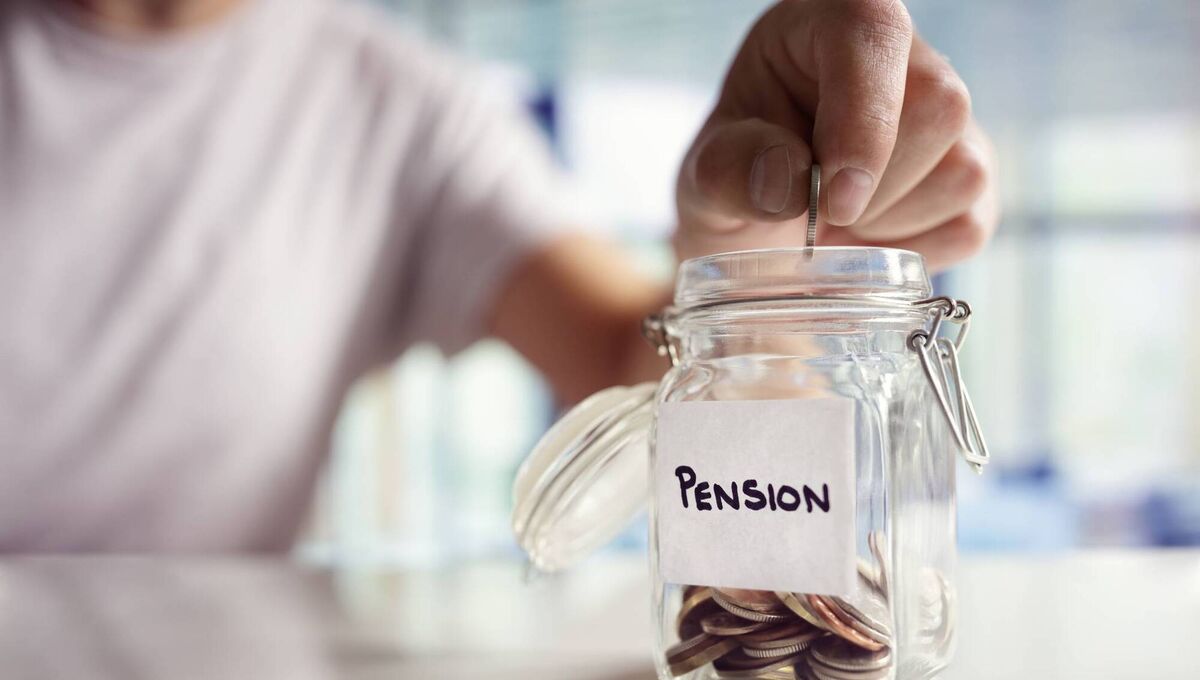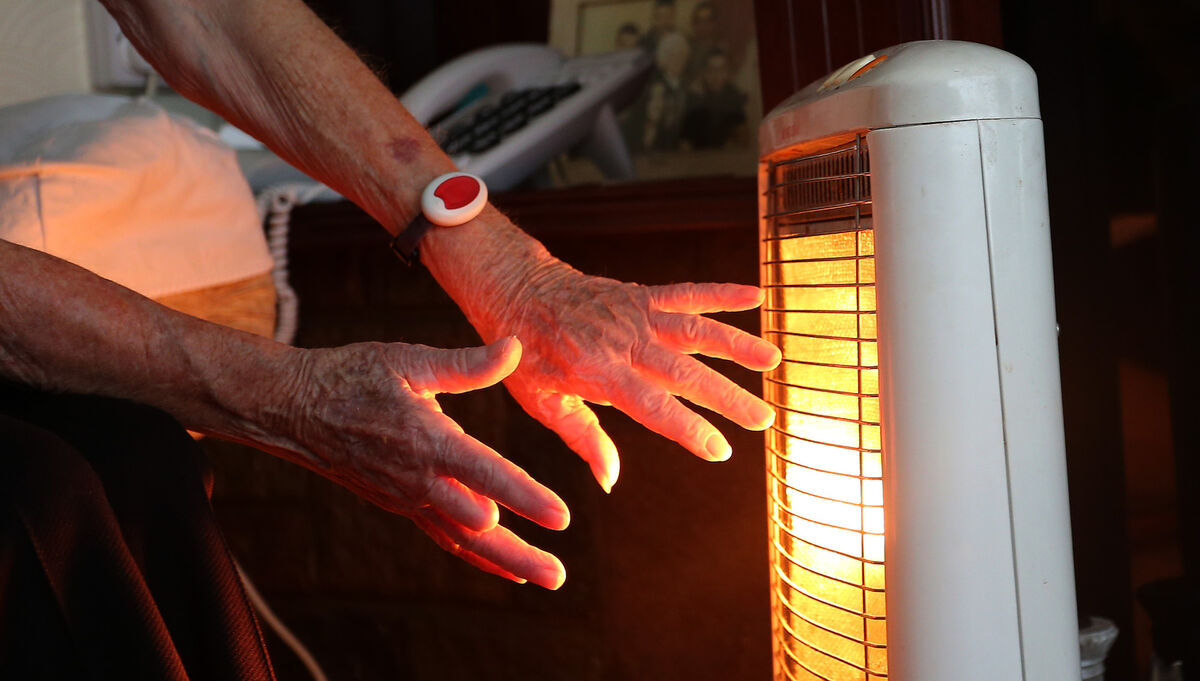Warning over 'spectacular' surge in fuel costs and rising rents

People are choosing between heating and eating, advocates say. Picture: Stock Image
The soaring cost of living has been thrust into the spotlight again as another report highlighted the seriousness of the situation.
The Central Bank forecast that inflation would surge again this year. Singling out energy prices, in particular, the bank’s governor Gabriel Makhlouf described the surge in costs here as “spectacular”.
In essence, according to the Central Bank analysis, those living in lower-income households will be disproportionately affected and feel the pinch that bit more this year.
And, yet again, the issue dissolved into a Dáil row with Labour leader Alan Kelly telling the Taoiseach that the cost of basic necessities going up would translate to an extra €3,000 to €4,000 on households over the course of the year. Micheál Martin said the Government would tackle the issue.
The same debate is happening in the UK at present, with journalist and activist Jack Monroe winning acclaim for her campaign which has pointed to the disproportionate effect price rises are having on those on small or fixed incomes.
Such is her success that she is creating her own index of “insidiously creeping prices” - the so-called Vimes Boots Index - which draws inspiration from the work of the late author Terry Pratchett who had laid out his own theory of “socio-economic unfairness”.
The pattern of worrying figures emerging on the cost of living and subsequent political fallout has been a pattern playing out in Ireland now for several months, as the “spectacular” price hikes in energy prices for families across the country have driven inflation to levels not seen for well over two decades.
Amidst all the noise and all the figures, there are a few pertinent points to be made that can go a long way towards capturing the essence of the situation here in Ireland today.

A report earlier this month from Social Justice Ireland said that, once housing costs are factored in, around one million people in this country are at risk of poverty.
Now, when we say poverty it actually has a fairly clear definition. When someone has an income 40% below the national median income (in 2020, it was €23,675), they are defined as being at risk of poverty. For context, the annual income from the State pension is just over €13,100. Working full-time on the minimum wage gives a gross wage of €21,840.
The Central Statistics Office says those at that income level and who are unable to afford two or more of the following would be classed as being in consistent poverty:
- Two pairs of strong shoes
- A warm waterproof overcoat
- Buy new (not second-hand) clothes
- Eat a meal with meat, chicken, fish (or vegetarian equivalent) every second day
- Have a roast joint or its equivalent once a week
- Had to go without heating during the last year through lack of money
- Keep the home adequately warm
- Buy presents for family or friends at least once a year
- Replace any worn-out furniture
- Have family or friends for a drink or meal once a month
- Have a morning, afternoon or evening out in the last fortnight for entertainment.
When a report suggests one-fifth of the population is at risk of this kind of poverty after they’ve covered their housing costs, it does make one pause for thought.
Alongside that are the cold, hard facts from the CSO that show that prices consumers are paying are only going one way.
The elephants in the room - housing and fuel - have gone way up. Between December 2020 and December 2021, the cost of electricity rose by 22.4% and gas by 27.7%. Over the course of a year, that’s hundreds of euro on an annual power bill.
Private rent is up 8.4% on the same period. Again, that’s hundreds of euro.
But even the price of a shop has gone up.
In the space of a year, rice is up 3%, bread is up 5.3%, pasta is up 6.4%, butter is up 2.8%, tea is up 1.9% and coffee is up 2.5%.
Digging deeper into CSO figures, in the space of a year a 2kg bag of flour rose from €1.97 to €2.07. A large slice pan that was €1.29 in 2020 was €1.37 at the end of 2021. A tin of tomatoes that was 80c in 2020 became 88c in 2021. These may all be relatively small price changes. But if the price of almost all necessities is going up, it’s certainly going to make its presence felt.
Dermott Jewell, policy and council advisor at the Consumers Association of Ireland, told the that these rises could be easily absorbed by many people but have a disproportionate effect on others.
“There’s no question that it’s a serious problem,” he said.
Mr Jewell said the effect is acute for people on fixed incomes, such as individuals relying on a State pension and others on social welfare payment.
“The €5 increase that’s just taken effect [for the State pension]. That’s, to all intents and purposes, a 2% increase. That 2% has been completely eradicated in terms of the increase in the cost of living.”
So, even if your average spend in the shop went up by a fiver a week - and given the small rises in things people would be buying regularly during the course of a week, it’s entirely possible it will rise by much more - that’s still an extra €260 over a year.
That increase is more than one week of the State pension swallowed up by just the increase in the cost of groceries. And that’s not counting the huge spike in energy costs.
“For those on fixed incomes, it’s exceptionally hard to make ends meet,” he said.
So how is that impacting people on the ground?
Dr Tricia Keilthy is the head of social justice at St Vincent de Paul.
Heading into Christmas last year, she told the that the added pressure of debt and Covid on top of the rising fuel prices meant that “people who never struggled before will face a difficult time” this winter.

She said that some people would face the choice between buying extra food or heating their homes. Speaking to the Irish Examiner again earlier this month, she said predictions of a difficult winter for many were borne out.
“Hearing from our regions, it’s been one of the busiest Christmasses we’ve had for a long time,” she said, with calls for help with utilities bills between September and December up 24% compared to the same period in 2020.
Advocates have made the point that people needing assistance to meet existing costs are already struggling, and will struggle even more to meet the expected rises in the cost of living predicted over the course of 2022.
Sean Moynihan, CEO of the older persons charity Alone, pointed to the €100 electricity credit being given to every account holder in Ireland but contrasted that with the average increase across all suppliers of gas and electricity last year of over €770.
“We do not believe that this will address the financial hardship being experienced by many low-income households who are living on fixed incomes,” he said.
“In the context of the current cost of living crisis, it is important to highlight that many older people are reliant on the State Pension, which is below the poverty line.”
He said that a report from the Parliamentary Budget Office which found that while the nominal increase - the literal monetary amount - of the contributory State pension has risen by 10% between 2011 and 2021, the actual real increase when you take inflation into account is 1.7%.
For jobseekers, the real increase is 2.3%.
That report said: “Recent inflation rates and forecasts have resulted in real rate decreases in some instances, e.g. the contributory State pension will decrease 0.5% in real terms in 2022 based on the inflation forecast of 2.5%.
“Therefore, although the contributory State pension will increase by 5% per week in 2022, the purchasing power of the weekly payment will actually be less due to inflation.”
So, in effect, the extra €5 won’t even meet the extra cost of living people are faced with week to week. And that’s if inflation is at 2.5% - this could be even higher according to the Central Bank forecast last week.
Mr Moynihan said: “Alone has heard from many older people who are struggling each day.
He said that an older person on the contributory State pension is €38.18 below the poverty line each week and the Government must take a number of actions to address this.
Solutions, meanwhile, have shown themselves to be somewhat elusive as largely outside our control. The Brexit fallout, rising fuel costs internationally, the pandemic; these are said to be driving the various price rises.
Among a number of measures, Alone is calling for the State pension to be benchmarked at 34% of average earnings, an immediate increase in the fuel allowance and a widening of the eligibility criteria.
Mr Jewell, meanwhile, said that his organisation has been pushing the Government for an urgent interim review of welfare payments, and the consideration of a VAT review, in a bid to ease the pressure on consumers now.
“It’s worse [than previous periods] in the sense that it’s out of control,” he said.
“
“Most of these increases aren’t caused by ourselves, and we have no idea how long it’s going to take to remedy them.”
For the hundreds of thousands living at risk of poverty in this country, no timeline on when these issues can be remedied means that - even as many of our lives return to a post-pandemic normality - 2022 may still be a grim year.

Case Studies
Alone outlined the cases of a number of people who had reached out to their services in recent months:
- Marie* was having financial problems and wanted to change electricity providers because her bill was so high. She also had the fuel allowance cut in her pension. She’s in receipt of the non-contributory pension and is struggling to get by.
- She’s in ill health and finds travel costs to hospital very high. Alone linked Marie in with a financial advisor to chat about her options.
- Michael*, meanwhile, lives alone and gets the pension every week. He spends most of it on briquettes for the fire to keep his house warm and heat up the water. He was directed towards the social welfare office to enquire about the exceptional needs scheme.
- Frank* and his wife were refused fuel allowance twice. They live in an old house which is cold and damp. Both of them have health conditions.
- A GP letter was provided to support an appeal of fuel allowance, as GP said they need to be warmer and keeping well. Frank is not clear on his contributions and doesn’t understand how working on a building site his whole career he would not be entitled to fuel.
- His wife raised their 4 children and had breast cancer for years but she has no entitlements, he says. Their children try to help but they also have families of their own.
- Anna* doesn’t have a lot of money and is starting to run low on oil. She wants to get some but said the company will only come out if a minimum of €200-250 is being spent. Alone pointed her towards supports that are available to try sort it out.
- * Names have been changed.





